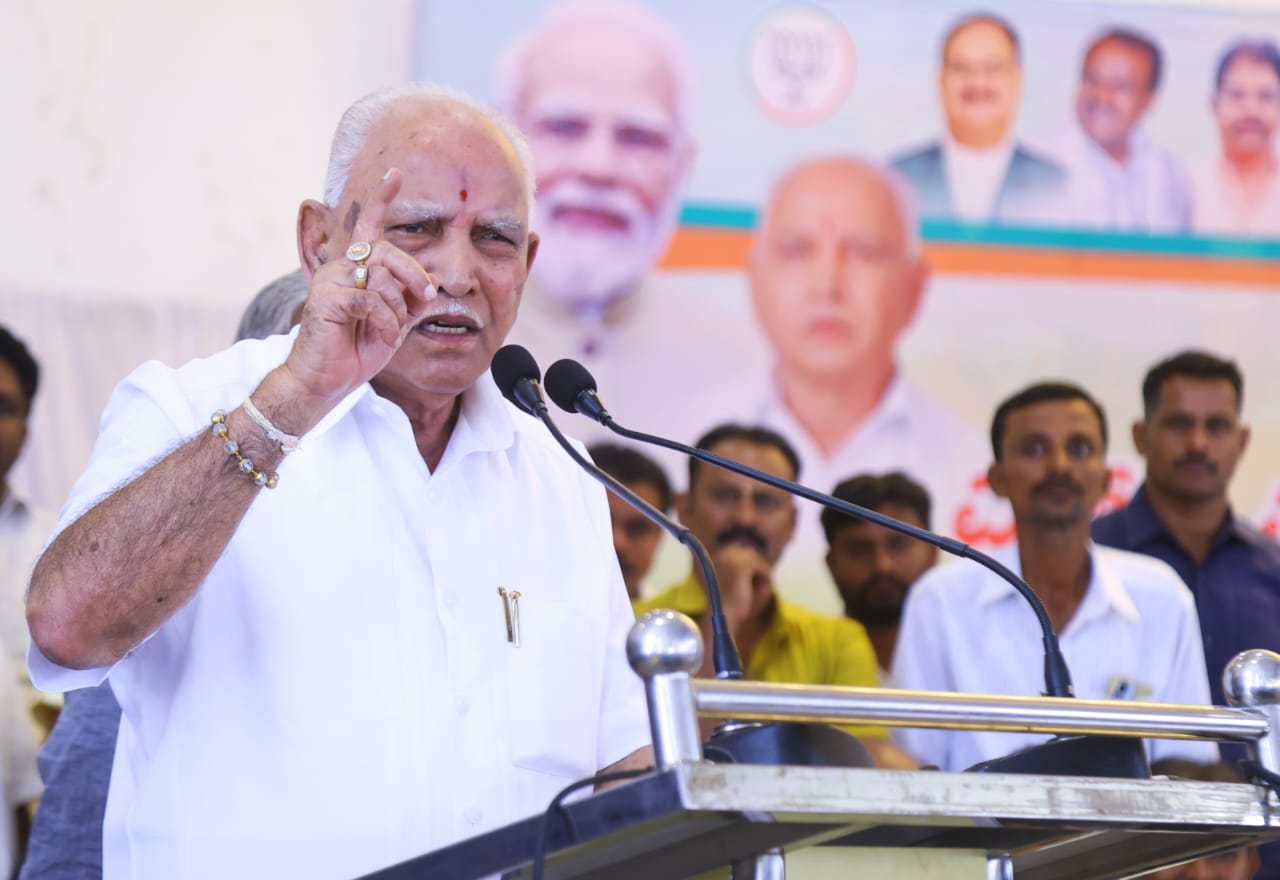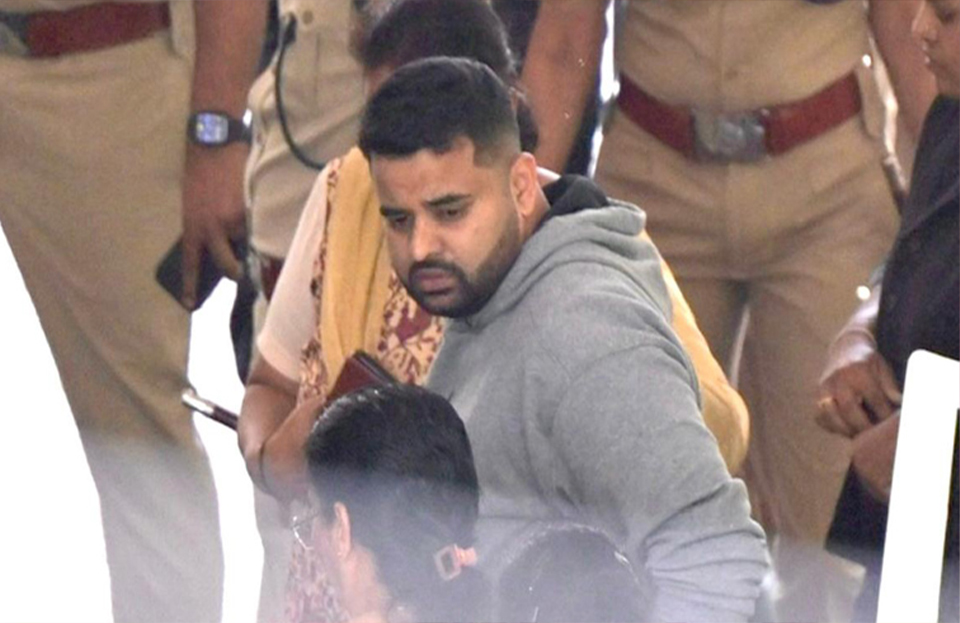On Saturday, a Special Investigation Team (SIT) took suspended JD(S) leader Prajwal Revanna to his house in Holenarasipura, Hassan district, for a spot inspection. Prajwal, aged 33, who had contested the Lok Sabha election as an NDA candidate from Hassan, is currently embroiled in multiple sexual assault cases.
The situation is further complicated by the involvement of Prajwal’s family in legal troubles. His father, Holenarasipura MLA H D Revanna, and mother Bhavani Revanna, are out on bail related to a kidnapping case. This case pertains to the abduction of a woman who allegedly appeared in numerous explicit videos of sexual assault, purportedly involving Prajwal.
According to police sources, SIT personnel brought Prajwal, the former Hassan MP, to his Holenarasipura residence under tight security measures. The authorities took no chances, cordoning off the entire area as a precaution. This marked Prajwal’s first visit to his residence since April 27.
Prajwal, who was seen wearing a black T-shirt and a mask, had been in Germany after explicit videos went viral, depicting women being sexually abused allegedly by him. He fled the country amidst the growing scandal, returning only on May 31, after which he was promptly arrested by the SIT. The SIT was established to thoroughly investigate the serious allegations of sexual assault against him.
This case has drawn significant media attention due to the involvement of a high-profile political family. Prajwal is the grandson of former Prime Minister and JD(S) supremo H D Deve Gowda. The scandal has not only tarnished Prajwal’s political career but also brought considerable scrutiny to his family’s activities and associations.
The investigation into Prajwal’s alleged crimes has been rigorous. The SIT has been methodical in gathering evidence and ensuring that all necessary legal procedures are followed. The inspection of Prajwal’s house in Holenarasipura was a critical part of the ongoing investigation, aimed at uncovering any additional evidence that could substantiate the charges against him.
The allegations against Prajwal have sparked widespread outrage and condemnation. Women’s rights organizations and activists have been vocal in demanding justice for the victims, calling for a swift and thorough investigation to ensure that those responsible are held accountable. The case has also prompted a broader discussion about the prevalence of sexual violence and the need for systemic changes to protect vulnerable individuals from such heinous acts.
As the investigation progresses, the SIT is expected to continue its meticulous work, leaving no stone unturned. The authorities are also likely to keep the public informed about significant developments in the case, given the high level of public interest and concern.
Prajwal’s legal team, on the other hand, is preparing to mount a robust defense, arguing that the allegations are part of a political conspiracy to tarnish his reputation and that of his family. They claim that the evidence against him is circumstantial and that the case is being blown out of proportion due to his high-profile status.
The judicial process will ultimately determine Prajwal’s fate, as the courts will assess the evidence presented by both the prosecution and the defense. The case is a reminder of the complexities and challenges involved in addressing allegations of sexual assault, particularly when they intersect with issues of power, politics, and public perception.
In the meantime, the affected communities in Holenarasipura and beyond are grappling with the implications of the case. The allegations have undoubtedly shaken the trust and faith of many individuals, highlighting the urgent need for effective mechanisms to address and prevent sexual violence.
The outcome of this high-profile investigation will have far-reaching consequences, not only for Prajwal and his family but also for the broader fight against sexual violence and the quest for justice for survivors. The nation watches closely as the judicial process unfolds, hoping for a resolution that upholds the principles of justice and accountability.


 india1 year ago
india1 year ago
 Sports1 year ago
Sports1 year ago
 india1 year ago
india1 year ago
 Entertainment5 months ago
Entertainment5 months ago
 Entertainment1 year ago
Entertainment1 year ago
 Karnataka1 year ago
Karnataka1 year ago
 india12 months ago
india12 months ago
 Karnataka1 year ago
Karnataka1 year ago





